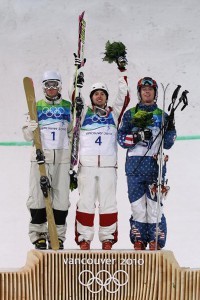We posted this blog in 2010 as a commentary on the Vancouver Winter Olympics. Not much has changed in the dozen years since and the question still remains. Much has been said this year about the “Chinese” athletes from North America, and the Canadian bobsledder who won gold for the U.S. and many others.
The blog below mentions athletes that we may have forgotten. The issue remains if the names have changed.
It makes the country standings seem rather disingenuous. The Olympics was developed to create harmony between nations, so having athletes who made personal choices of their countries seems consistent with the need for harmonious relations – as long as people see it that way and not as a betrayal of nationality. Sadly, a lot of that interpretation of their decisions is based on success or failure.
With all the commercialization of sport, maybe we are losing the real reason for competitions like the Olympics: good will amongst the family of humanity.
Blog From 2010:
As we watch the Vancouver Olympics, we are focused by the media on the standings by country. To count each country’s medals. But there are only a few sports that are really team events: hockey, team pursuit speed skating among them. What is this drive to nationalism – latent tribalism?

But as you start scraping the surface you see that country is a flexible term. While all of Canada was elated to see Alex Bilodeau win gold, he beat Dale Begg-Smith. Begg-Smith was born in the town where the competition was staged, Vancouver, B.C., Canada, but was competing for Australia. Why? For political and personal reasons.
So would we have been as happy celebrating Begg-Smith winning gold — a Canadian native under the Australian flag? Probably not.
But Begg-Smith is hardly alone. Later the same day we watched world pair skating champions, Aliona Savchenko and Robin Szolkowy of Germany. Savchenko previously skated representing the Ukraine, her country of birth. Szolkowy could also skate for Tanzania if he wanted and if they had a team.
Or Yuko Kavaguti and Alexander Smirnov who skate for Russia. Kavaguti (Kawaguchi) previously skated for Japan. We could go on.
The same is true for many other competitors in these Olympics and the same is true of the summer games where athletes born in one country were competing for others.
Why not?
If we believe that the Olympics promote brotherhood and good well, then what do we care for country? Professional athletes are not stay at home people, either for city or country or even continent. They go where the money is.
For Olympic sports, athletes go where the opportunity is. Like all of us seeking work and opportunities to enrich our lives, for school, or work, or life.
A world where people move around is a better world. We learn about other people and find out that they are pretty much like us, but they do things differently.
The rub of cultures brings invention that makes everyone’s lives better. Who could get by in North America without tacos or pizza or pho? Or take spaghetti – noodles from China, tomatoes from South America collide in Italy and, dare I say, voilà!
While it might be a long trip from a gold medal to a plate of pasta, it is interchange of cultures that drives innovation and competition.